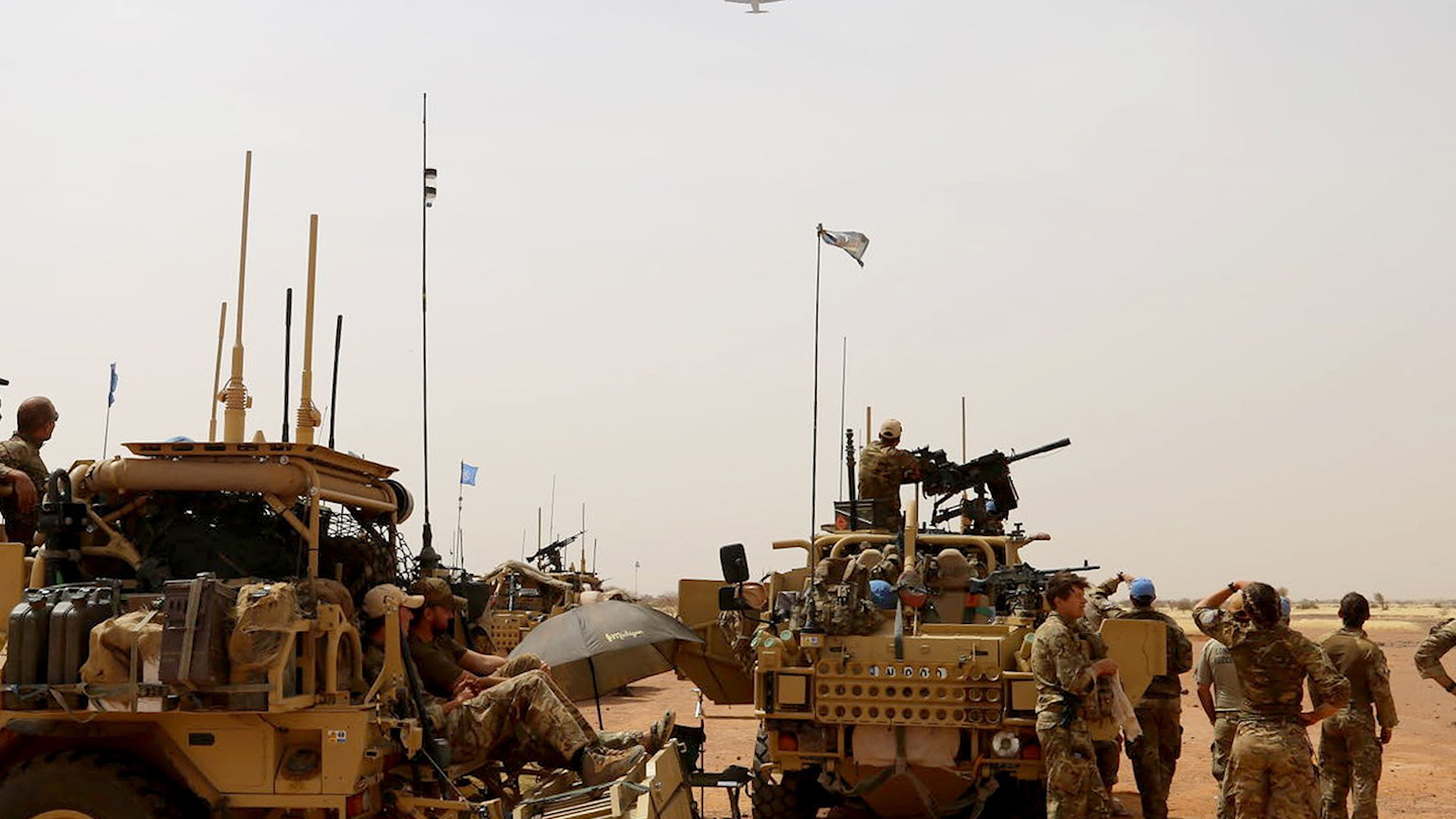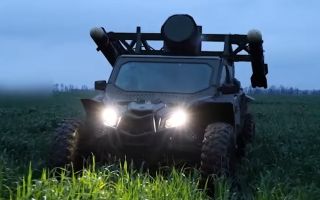Islamic State: How Big A Threat Do They Still Pose?
The so-called Islamic State (IS) terror group remains active and "has not been defeated", a professor has warned.
Fawaz Gerges, Professor of International Relations at the London School of Economics and Political Science (LSE) and Inaugural Director of the LSE Middle East Centre, told Forces News earlier this month that IS, also known as Daesh or ISIS, has "received a major blow… both in Iraq and Syria".
The comments come after the Royal Air Force helped clear an IS stronghold in Iraq during a 10-day operation in March, which saw Storm Shadow missiles and three RAF Typhoons carry out an attack on the Daesh targets.
In December, a Government report found IS was "driving" the UK's terror threat while global defences have become sidetracked by the coronavirus pandemic.
It is just over two years since then-US President Donald Trump declared all territory held by so-called Islamic State in Syria had been "100%" eliminated, with the fall of the IS caliphate being declared.
Fawaz Gerges said: "Basically, [IS] has been able to really now restructure its forces, waiting for opportune conditions… in Iraq and Syria, in order to surge."
Watch: The RAF recently was part of a 10-day operation against so-called Islamic State.
The professor added that the number of active combatants the terror group has is estimated at between 10,000 and 12,000.
"ISIS has been able to secure hideouts for its fighters in the mountains and valleys and deserts," he said.
"It has carried out thousands, as opposed to hundreds, of low-cost and limited attacks in both Iraq and Syria since 2019."
Prof Gerges said Iraq is still where IS are the most active.
"Even though… the territorial caliphate has been dismantled in Iraq and Syria, in 2017 and 2019, the so-called Islamic State has been able to adapt," he said.
"The so-called Islamic State now has a major foothold in Africa, in Afghanistan, in Pakistan.
"It no longer really wages large-scale, complex operations, it wages now limited, small attacks – hit and run attacks."

British troops have deployed to the Sahel region of Africa in support of a United Nations (UN) peacekeeping mission, amid the threat of terrorism.
In February, the commanding officer for the UK Task Group in Mali said British soldiers deployed in the country were ready to begin "operations directly contributing to the UN".
The west African country has been on the brink of chaos in recent times, including a coup that overthrew its president and prime minister, continued struggles against Islamist extremism and the COVID-19 pandemic.
The UK also signed a security agreement with Kenya, promising deeper cooperation to combat threats, including terrorism.
Defence Secretary Ben Wallace also visited Somalia, where he vowed to continue helping the country's military forces to combat terrorist groups.
But Prof Gerges told Forces News despite the US-led coalition remaining "extremely active", it has been mainly through airpower.
"The reality is, as we know, airpower on its own can never defeat an insurgency like ISIS," he said.
Cover image: Islamic State militants firing AK-47 rifles (Picture: PA).









